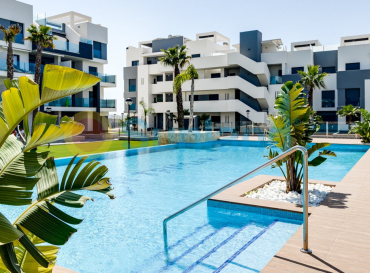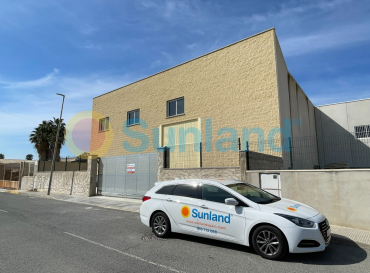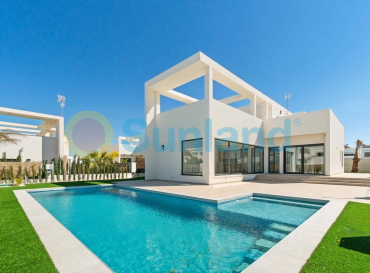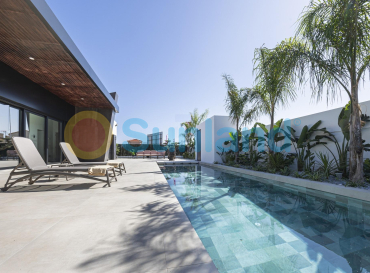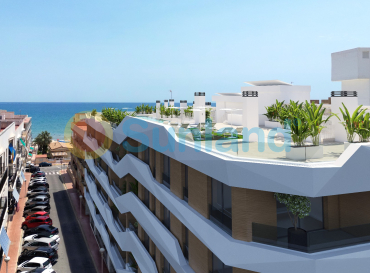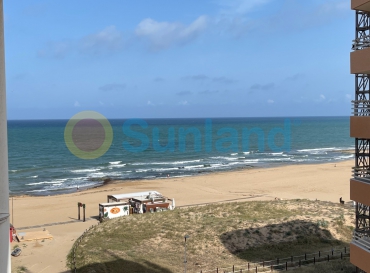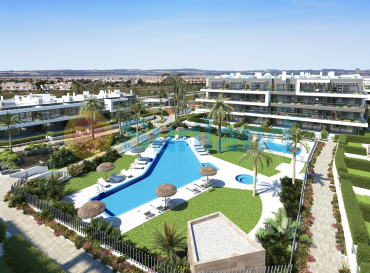Useful information about buying and selling a property in Spain
Below you can find some useful information. We are aware that laws and regulations may change constantly, so we cannot guarantee that the information provided below is always up to date and correct. Therefore, you should check all the significant details, at the same time, when buying or selling homes in Spain.
What do I need to buy a property in Spain?To buy a property in Spain, you will need a national identification number. This is called the NIE number (national number of foreigners). If you do not have this, then we can help you, through our attorney, to request it. You must bring the original passport of your home country. This normally takes some time but can be applied for as soon as you decide that you want to buy a property in Spain. However, you can sign a pre-purchase contract with your passport, but to get the deed of property you must have a NIE number. In addition, you must open a bank account at the Spanish bank, in which you will have to pay all the expenses of the House, also direct debits. Sunland is committed to helping you open your bank account. It is also useful to have opened a bank account at an early stage, if you then want to apply for a loan in the same bank and advance the process a little. |

|
How much does it cost to buy a property in Spain?
All prices of homes sold in Spain are published without including taxes, fees, and expenses. As a rule, you can count between 13-15% extra in relation to the price of housing. This depends in a certain way on whether you need a loan or not. In addition, it depends on the price of Housing, and in what region it is located.
Taxes and expenses usually consist of (when buying without a loan):
- In case of new housing, 10% VAT (Value Added Tax) is paid. In second-hand homes, a property transfer tax of 10% is paid (in Andalusia there are other fees depending on the price of the house, but of 8-10%).
- Fees to notaries, property registries and various charges around 2.5%. The price depends on the purchase price and how many pages are in the property deed and the attachment in the property deed.
- Lawyer 1-1, 5% minimum 1500 EURO + 21% VAT
Prices published on Sunland's websites are always without tax but including commission. This applies to both new and second-hand housing. In rental and commercial housing there may be other conditions. Please contact Sunland in any case.
Is it recommended to buy New built or Resale homes in Spain?
This becomes an individual consideration that each person must take, but new houses have stricter requirements, among other things, insulation, compared to old houses. In old houses, depreciation should be considered. This can be anything from aesthetics, to plumbing fixtures and installations. In a newly built residence, on the contrary, this is the thing, about which you do not have to think for years. New buildings also have up to 10 years warranty on construction defects.
How long does it take from the signing of the booking contract and until you can enter the property?
In second-hand housing, this depends on several conditions, including the possibility of applying for a mortgage loan. If you do not need a mortgage, then a transaction can be made quite quickly. But you need to calculate 4-8 weeks from the reservation and until the deed of title to the property.
In the new housing, which is under construction, this is specified in the purchase contract. If the housing is already delivered, then we must count about 4-8 weeks.
Do I have to pay an amount when booking a house?
If you buy a newly built property, you must pay an amount at the time of signing the contract. Then there is a schedule of fixed payments, until the purchase of housing is completed. The last amount is paid on the day the deed of sale of property is signed. In new buildings, then builders can ask for bank guarantee on their paid amounts. This is something we recommend, especially if the house is not finished and is still in the process of construction. Costs of such guarantees, according to Spanish law, is obliged to pay the promoter himself.
When buying second-hand housing, you must pay a housing reservation fee. The amount usually depends on the price of the property, but usually it is between 3000-6000 euros. This amount remains in Sunland's account until the housing transaction is completed. Here it is noted, that, if the purchase is reversed by the buyer, the amount of the reservation he has paid is lost. If there are cases in which the seller cancels the sale, you will be refunded from Sunland 100% of your paid amount.
Can I buy a house, which is rented?
Our answer is yes, you can, but this is not strongly recommended. Tenants have very strict legal protection in Spain, and it can be difficult to remove the tenant, on the day you want it. You could in the worst case have to finish the rent with past up to 5 years and get the tenant to leave, and in the meantime you have to pay all the costs of the property.
Is it expensive to have a property with a pool in Spain?
It is important to note that water is paid according to consumption, then if you have a pool, then this is something that costs a little more to maintain it. The same if you are going to have a natural lawn or plants that need watering. If you have a pool, it may be a reasonable investment to buy a deck so that as much water does not evaporate. It is also easier to keep it clean. If you do not live in Spain, then it is better to also rent a pool maintenance service in one of the local companies.
What is resident or non-resident of Spain?
Resident we would say that he is a citizen who lives permanently and pays taxes to the country. If you are a resident of Spain, you will be considered as other Spanish residents, with rights and obligations. Among other things, you must pay taxes to Spain for all income and wealth you get. There are many significant moments to think about, before possibly. apply to become a resident (permanent resident) of Spain. Here we recommend a thorough review with the attorney and tax advisor, before making the final decision.
Becoming a resident of Spain, you also normally lose a good number of rights in your country of residence, and it is not always what is recommended. There are many examples when elderly people who have lived a long life in Spain return home to their home country. If they are for example people who require care, then, unfortunately, it is not always so easy. In case you need to apply for a home in nursing homes in the country of origin, in this case Spain, and your request to move to nursing homes in your country of origin is denied.
If you live more than 6 months in Spain, then you are obliged to apply for the residence card? That is, then he becomes a resident.
Do I have to pay taxes to Spain if I am not a resident (permanent resident of Spain)?
If you have a property in Spain, you must file a tax return every year to the Spanish authorities. If you rent your property in Spain, a tax will be paid on all rental income you receive on the Spanish property. If you do not rent housing, you will pay a housing tax, calculated from the cadastral value of the housing.
There is a tax agreement between Spain and several countries, which regulates tax issues. This is to ensure that you are not subject to double taxation.
In Spain then there is normally no property tax, on homes with a cadastral value less than 600.000 euros, but this can vary from one region to another.
In your home country, you are usually obliged to provide information about the property you own abroad, and you may be taxed for this. In Norway, the main rule is that you must declare 30% of the market price/sale of your property in Spain. The Norwegian authorities have stated that with market prices they calculate 30% of the purchase price of the property.
Can I take out a loan in my homeland to buy a home in Spain?
Yes, you can, but then one must think about the exchange rate. If you borrow in a currency other than the EURO, large costs or benefits may arise when redeeming it. Depending on the exchange rates, at the respective times.
In addition, as a rule, you must have a residence in your home country, so that the bank can grant it to you. If you apply for a mortgage in Spain, then you do not have to tie up collateral, in your home country? In addition, borrow in euros and you will not have monetary losses on the sale of the House.
If you are buying a home with money from your home country, when you buy the property, you must document that these funds come from your country of residence. The easiest way to do this is to create a Spanish bank account, to which you transfer, from your account in your country of residence. Note the exchange rates. It is often worth negotiating with the bank in your country of residence, and then transferring the amount in euros to your Spanish bank. Is it transferred in any other currency, then the Spanish bank can take a substantial fee to receive this? If you cannot provide proof of legal origin of the funds arrived in Spain, then the notary public will sign the documents, and this will delay the acquisition of the property, until this documentation.
Can I apply for a loan in Spain, to buy a home in Spain?
Yes, you can, but normally foreigners can borrow up to 70% of the purchase price or the bank's appraisal of the property. If you are a resident (permanent resident of Spain), you can borrow Max 80%. There is always the possibility that the valuation will be lower than the selling price, in this case it is taken as a basis for calculating the amount granted by the bank. An example: do you buy a property for 250,000 EUR+ expenses, and the bank values your house at 230,000 EUR. You can borrow for a maximum of 70% of EUR 230,000 = EUR 161,000.
A loan is always granted according to your economic ability to repay the loan. A loan in Spain usually has to be fully repaid when the debtor reaches the age of 73 (75) years. It is not easy to get loans, if you are against that age. The period for which the loan can be obtained is from 15 to 30 years, depending on your life situation and age. Sunland helps you contact the Spanish bank, to apply for a mortgage loan.
What is the cost of a loan in Spain?
This may vary from bank to bank. But it is important to carefully study with the documents before signing. Often, expenses arise, if you want to cancel the loan before the agreed loan period. For example, if you are going to sell the property, and you must repay the loan in advance. It also usually involves expenses, if you want to request changes during the time the loan is in effect.
The cost of the loan consists of the following:
- Opening fee 1-2% of the loan amount,
- Notary fees. The price depends on the amount of the loan and the number of pages in the writing.
- Property assessment, which depends on the property, but usually between approx. EUR 400-800.
- The cost of registering the loan in the property registers - can vary, but usually between approximately 400-600 EUR.
- When applying for a mortgage, the bank requires that the property be insured. In some cases, a homeowner must also sign a life insurance policy, paying off the loan to the bank, in case of death or disability. Usually, the bank will require this insurance to be signed with an insurance company accredited by the bank.
The loan document is signed simultaneously with the registration of property at the notary.
How much does it cost to have a property in Spain?
This depends on the location of the residence, type of housing, size and how it is used. Electricity and water, of course, will be according to consumption. As a rule, electricity is relatively expensive per KWH in Spain. All invoices can be direct debited and paid automatically from your bank. Sunland can help you with this.
Here we will tell a little about fixed expenses:
IBI - - real estate tax-municipal property tax. It is paid annually, and everyone is obliged to pay it. It is calculated based on the cadastral value of housing. In practice, the more expensive the housing is purchased, the higher the cadastral value and the more it will pay. However, if you are buying an older property, then the cadastral value may be lower, so it is important to check what this fee is when buying the property. It can also be noted that the Spanish state, can change the values of the equation, so in the future these may vary. At the time the fee is paid may vary from municipality to municipality.
Rubbish collection fee – a municipal fee for Waste Management (garbage disposal). The price varies between 80-200 euros per. year. There are ordinary garbage containers on the streets. There are also several places where you can remove debris from plastic, metal, paper, glass, etc. Sunland advises everyone to resort to waste sorting.
Community of neighbours-common expenses: these are joint expenses, when living in a co-ownership, for example in an urbanization or in a block. In private housing with own plot of land there is no such expense. The size of the community fee varies depending on the size of the neighbourhood, the size of the common facilities, as well as what services are included in the responsibility of the neighbors. The tax is calculated on the basis of the square meters of the individual property and the percentage of the total area of the individual property. The time and frequency of payment vary from one common property to another.
Should I call a lawyer in case of property surpluses in Spain?
Our answer is yes. You can do this without a lawyer, but then you need to have experience and know the Spanish regulations. In most cases foreigners do not have any previous experience in the matter, so we always recommend turning to a lawyer.
The lawyer reviews all the necessary documents and verifies that there are no charges on the property. In addition, it assists in the signing of the deed of property with the notary and manages the inclusion of the housing in the property register. It also ensures that the necessary taxes are withheld from the seller, who pays to the tax authorities. It serves to ensure that you as a buyer are not responsible for this matter. As a buyer you are obliged to withhold 3% of the price, if you buy a property, by someone other than the resident in Spain. If the seller is a resident, then no tax should be withheld.
You can also issue a power of attorney, to sign and arrange all documents, on your behalf. Then you do not even have to be present at the notary deed signature.
Sunland advises a lawyer for this, which we recommend that our clients come to their services. But you can choose to use your own manager if you wish. The costs of an attorney are paid by the person using your service. As a rule, it is the buyer who pays the expenses of his lawyer, notary, and registration.
What things does Sunland, and his lawyers check for me?
It is important that all procedures are carried out according to the regulations at the time of purchase sale of a property. We highlight here for some important concepts. You contact a lawyer about acquiring a property. The lawyer does not inspect the property, but yes, he checks all the documents, which are public about the property. Relevant issues:
Title deed: the title deed contains material information about the property and who owns it.
Simple note-print of the extract from the property registry describes much of what is exposed in the deed, but here are the current liens for the date, registered in the property, loans, charges, or if you take mortgage on the property, due to taxes or unpaid fees.
Cadastre: it is updated independently of the land registry. They process regularization and regularities, update the square meters that are built and legalize. In addition, they see any extension made. Here, aerial photographs of previous inspections are compared. If the mapping information does not match the registration of the property, then this may indicate, that there is something that has been built illegally. It is important to have checked it and to be sure in the conditions, before acquiring the property. If this is not done, you will be responsible for existing irregularities in the future. In many cases, such "illegal" construction work can be legalized at the very moment of the transfer of property. But this depends on, how long has passed since the work has been carried out, and that whether it can be documented in cartography. Today there is usually a period of 15 years, so that the changes can be legalized. That is, the building must be at least 15 years old, and a file should not be opened by the city council. Sometimes, it may be reasonable to acquire a home without legalizing the changes made, opting to do so in the future when the indicated deadline allows, but you must also bear in mind that the buyer bears the risk of having a fine from the city council. So, in the worst case, you can get a notice letter to demolish the construction that is not legalized or pay a fine that accesses the amount of 100% of the value of construction work.
Cadastral value-minimum value contains information about the cadastral value data of each particular property. Each municipality establishes a minimum value based on the cadastral value of the area.
Certificate of habitation / license of First / Second Occupation-Certificate of completion of work and delivery of the property intended for housing. This is a certificate issued by municipality bodies, it indicates that the property is habitable, that is, it meets all requirements and completely legal.
Energy certificate: it is a certificate that calculates what energy class the property has. It is classified From A to G, where A is the best and G is the lowest. It is very difficult to get Class A, but it can be found in some new buildings. New buildings often end up in Class B or A. second-hand homes often end up at the changing end of the scale. Do you have a Class A, then you will say that the housing will spend significantly less energy, than one in class G. The energy certificate is issued by a technical architect with whom Sunland cooperates. The certificate shall be entered in a public register. This should normally be on behalf of the seller. The processing price of this certificate depends on the property. The certificate must be presented when the property is transferred to the notary.
IBI & rubbish (SUMA) - municipal property tax and municipal waste collection rate: it is verified that these municipal taxes and fees are paid and that there are no outstanding debts, which can be taxed on the property.
Community of neighbours: it is the share of the property of an urbanization. It is then verified, that all community fees are paid, and how much is the monthly/annual community fee to be paid in the future by the new owner. A certificate is requested from the administrator where they indicate this data. In second-hand housing special attention should also be paid to, if there is a decision in the community about the high expenses in common areas, which the owners should are obliged to cover. If this clause exists, it is recommended to check that the previous owner has paid all expenses that corresponded to him. It can also be useful to get a confirmation, that other homeowners are up to date with their payments, so you do not take care of housing in a "bad neighbourhood".
Electricity (Iberdrola) and water-electricity and water contracts: it is verified that they are in order and that all bills are paid. Typically, the seller must present a receipt that the last 3 supply bills have been paid.
Inventory list-inventory list: if you buy a house with real estate, household appliances, then an inventory list should be drawn up. This will be attached as an attachment to the purchase contract and signed by both parties.
New construction-new building: do you buy a new construction property? We recommend that you perform checks that there are all the necessary permissions. Moreover, it is advisable to issue bank guarantee for the amount paid, and that it is paid during the construction period if the work is not finished.
How much does it cost to sell your property through Sunland?
Sunland charges you a commission to sell your property that depends on whether you give us exclusive management rights, or prefer to post the sale to multiple agencies. We recommend that management be given exclusively to Sunland, as this simplifies the sales process. In addition, we take a lower commission on exclusive sales. In addition, if Sunland has the property exclusively, we cooperate with many collaborators, agents that allow you to publish and promote your property through different portals. This increases the possibility of selling your property faster through the wide network of agencies and everything is coordinated through Sunland. The seller does not have to go to different agencies, in addition Sunland will always have a wider network of contacts to which you can reach with your exclusive home. For the seller it does not imply any extra expense on the property sold by a collaborator. For exclusive sale we can also post the exact street address and set up posters for sale at the residence. Which facilitates sales. For more details, please contact Sunland.
What taxes and fees should I pay when selling a property in Spain?
When selling the property, the seller must pay Plus value, and tax on any increase in the price of the sale. On the other hand, the seller must pay the cost of the lawyer, to request for example the refund of the advance tax.
PlusValia is a municipal tax, on the added value of the house, while you have been the owner of it. It is calculated from the base area of the property and how long the seller has owned it.
When you sell a property, and you are not a tax resident of Spain, you must pay an advance tax of 3% on the entire sale price. If you sell the property at a loss, you can ask to be refunded this amount.
This is something Sunland's attorney can do for you. However, it is a process that takes some time. It may take up to a year, to get this refund. If you are a permanent resident of Spain, then no advance tax is deducted, but it will be included in your usual tax return.
There are also special rules if you are a resident of Spain, under which you can lower taxes on profits from the sale of your property. This applies mainly if you buy a new property in Spain within a certain period. All of these rules are constantly updated and our lawyer can inform you of recent changes and advise how the rule can be applied.
Should I plan inheritance in Spain?
If you are quite older and have heirs, then this is something you should think about. Your heirs will save significant expenses and process you with a subsequent inheritance agreement. We have sold properties in Spain, where parents chose to put in the deed of property directly to their children. In such cases, we recommend that you obtain a lifetime use right in the dwelling. But, in each case, we recommend that you, consult with the lawyer and the tax advisor, about this.
It is also recommended that you sign a will in Spain. This significantly simplifies the inheritance agreement for your successors, Sunland attorneys can help you process it.
Is there any information you forget or want to correct on this page?
If so, please feel free to contact us. Email us at info@sunlandspain.com

